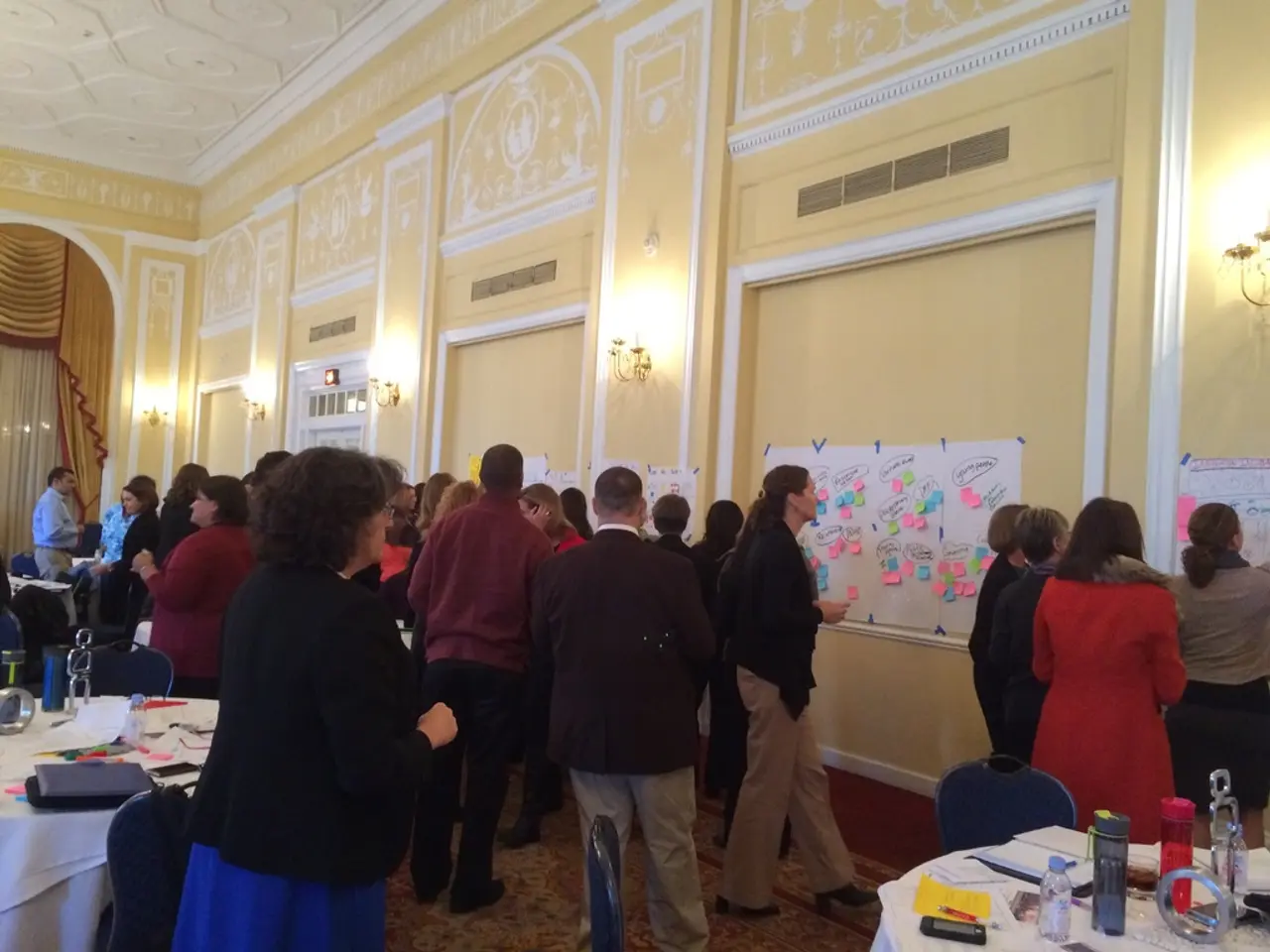Overlooked Factors in Startup Failures: The Significance of Human Resource Management
In the dynamic world of technology startups, it's easy to overlook the importance of human resources (HR) processes. However, Emmanuel Faith, a globally certified and award-winning Human Resource Manager, emphasises the crucial role HR plays in ensuring a startup thrives. With over a decade of cross-functional experience across diverse industries and six years spent in lead HR roles, Faith has honed his expertise in building sustainable people processes.
Faith, the founder of HR Clinic, a speed-consulting platform, believes that a great startup isn't just about the product; it's about the people building the product and having the right processes to empower them in a psychologically safe environment. He is a strong advocate for building a compensation and benefits structure as a strong foundation for a startup, providing clarity on salaries and benefits for employees.
However, the absence of a transparent, scalable, and defendable remuneration structure has led to the demise of several startups, such as Mara, 54gene, and Payday. High salaries paid to attract talent from well-paying companies like Apple may not always deliver the expected results. Instead, the cost of hiring "shiny talents" could fund multiple excellent local talents who would have a greater impact.
To reduce failure rates, startups can implement strategic people and HR processes. Key strategies include strategic workforce planning, leveraging HR technology and automation, hiring for cultural fit, and performance management.
Strategic workforce planning involves predicting talent needs based on growth plans, product roadmaps, and funding milestones. This foresight prevents over-hiring, under-utilization, and panic hiring, which can destabilize the team and increase failure risk.
Leveraging HR technology and automation can streamline HR operations, allowing startups to scale more agilely while focusing on strategic growth. Choosing the right HR Information System (HRIS) that fits the startup’s size, culture, and growth trajectory improves adoption and ultimately supports better talent management and retention.
Hiring for cultural fit enhances employee retention and job performance. Prioritising cultural fit during recruitment reduces turnover costs, lowers the risk of hiring mismatches, and strengthens relationships with clients or customers by building stable, cohesive teams.
Performance management and honest evaluation are essential. While startups may tolerate underperformers temporarily to avoid hiring delays, having a clear plan to manage or replace poor performers is crucial. Founders should assess whether underperformance poses a single point of failure and proactively plan for succession or improvement.
Unfortunately, more than a hundred people operations mistakes are made by Nigerian and African founders, including scaling the workforce size without proper planning and attributing personal expenses as business costs. The absence of operational licenses from relevant authorities contributed to 18 startup shutdowns in the previous year.
Monitoring people metrics, such as the cost of human capital, attrition rate, retention rate, and engagement rate, is important for understanding the contribution of employees to the business. Founders should be accountable for their actions, including using company funds for personal needs and declining to answer questions from employees.
In summary, startups that build strong HR foundations through planned hiring, technological enablement, cultural alignment, and proactive performance management are better positioned to reduce failure rates and build resilient, high-performing teams. By focusing on intentional workforce planning, leveraging technology, and fostering cultural alignment, startups can significantly reduce failure rates and create a sustainable, thriving business environment.
[1] HR Technologist, "The role of HR in the success of startups", 2021. [2] Forbes Africa, "The Importance of HR in Startups", 2021. [3] Entrepreneur, "Why Cultural Fit Matters in Hiring", 2022. [4] Harvard Business Review, "How to Manage Underperformers", 2020.
In the realm of tech startups, Emmanuel Faith, the founder of HR Clinic, advocates for giving equal attention to people processes as the product, stressing the importance of a psychologically safe environment and a well-structured compensation system. Implementing strategic workforce planning, leveraging HR technology, hiring for cultural fit, and performance management can help reduce failure rates and foster resilient, top-performing teams. (sentence 1)
Unfortunately, more than a hundred people operations mistakes, such as scaling workforce size without proper planning, are made by founders in Africa, leading to startups shutting down. To build a sustainable, thriving business environment, it's crucial for startups to focus on intentional workforce planning, technological enablement, and fostering cultural alignment. (sentence 2)




